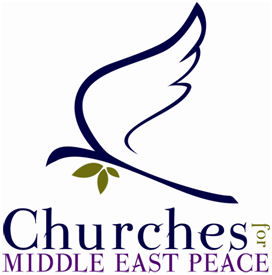CMEP Opposes Israeli Annexation and Sec. Pompeo’s U.S. Greenlighting
 CMEP Opposes Israeli Annexation and Secretary Pompeo’s Greenlighting on Behalf of U.S.
CMEP Opposes Israeli Annexation and Secretary Pompeo’s Greenlighting on Behalf of U.S.
On April 22, 2020, Secretary of State Pompeo, responding to the new Israeli coalition agreement, said that annexation of much of the West Bank is for Israelis to decide. Pompeo’s words were seen by people across the political spectrum as greenlighting annexation. Churches for Middle East Peace (CMEP) strongly condemns the Trump administration’s support for Israeli annexation of the West Bank and calls for the U.S. government to work instead for a viable and just peace between Israelis and Palestinians. Absent leadership from the Administration, Congress must immediately take concrete legislative action to make clear the U.S. government will not fund or otherwise support annexation.
President Trump’s plan, issued in two parts in June 2019 and January 2020, proposes that Israel annex some 30 percent of the West Bank regardless of Palestinian actions. After issuing the second part of the plan, the U.S. government sent a team to work with the Israeli government in a joint commission to map out the areas for annexation. The commission began work in February.
Unilateral annexation of Palestinian land in the West Bank is in direct contravention of international law and conventions, and would likely mark the end of any possible just and lasting resolution to the conflict. Annexation would further deprive Palestinians of any realistic chance for a state, eliminate diplomatic cooperation, and perpetuate the current withholding of aid by the U.S. government. It is unacceptable that the U.S. would recognize annexed West Bank territory to be part of Israel, and repugnant that the U.S. government is proposing and facilitating this confiscation of land designated to be the future Palestinian state. If Congress fails to act now, the United States will bear a significant amount of responsibility for the continued disenfranchisement of Palestinian rights and for the continuation of the conflict.
CMEP’s executive director Rev. Dr. Mae Elise Cannon says, “As Christians, we cannot support unilateral annexation; because peace must be negotiated between the parties directly involved – Israelis and Palestinians. As Americans, we believe the U.S. must neither foot the bill for annexation, nor provide diplomatic cover for it.”
The Israeli coalition agreement calls for annexation to be presented to the Knesset as early as July 1. At time of writing, Israelis have yet to affirm the Netanyahu-Gantz coalition as Israel’s government. For Americans, the decisions are whether to oppose unilateral Israeli annexation and whether later to impose consequences if — heaven forbid — annexation comes to pass.
Opposition must be quick. July 1 is just over two months from today. And there is no guarantee that an Israeli government would stop at 30 percent of the West Bank. Many Israeli leaders see that 30 percent as a minimum, and are calling for the annexation of all of Area C – – some 60 percent of the West Bank – – this July. Americans need to make their voices heard in favor of peace and opposing annexation.
Formed in 1984, Churches for Middle East Peace (CMEP) is a coalition of 29 national church communions and organizations, including Catholic, Orthodox, Protestant, and Evangelical traditions that works to encourage US policies that actively promote a comprehensive resolution to conflicts in the Middle East with a focus on the Israeli-Palestinian Conflict. CMEP works to mobilize US Christians to embrace a holistic perspective and to be advocates of equality, human rights, security, and justice for Israelis, Palestinians, and all people of the Middle East. The Christian Church (Disciples of Christ) and United Church of Christ are members of CMEP.
